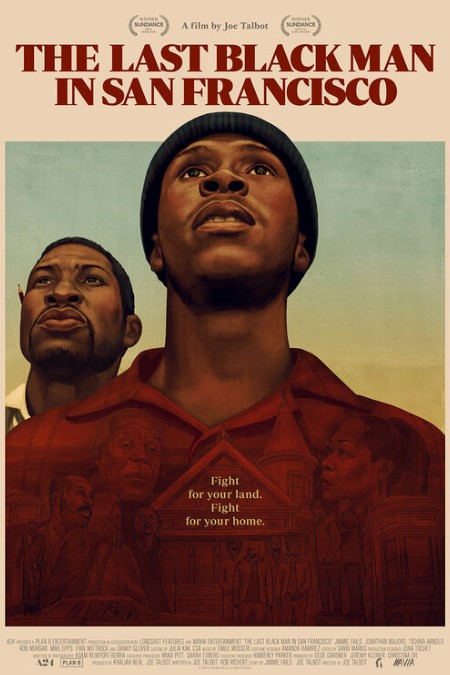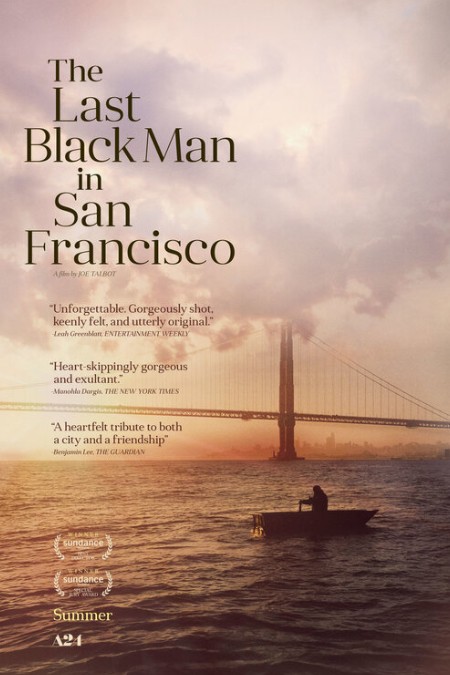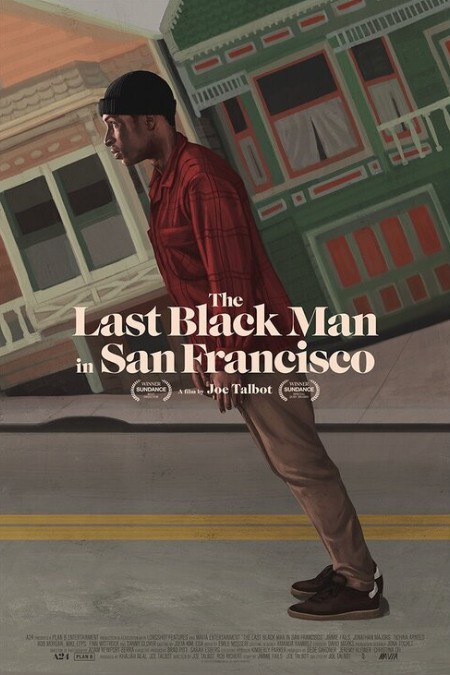
Belonging is a powerful thing for anyone.
Whether it is to a person or a place or a group of some kind, we all need to feel like we have somewhere to call our own, a sanctuary from the vicissitudes of life, an anchor in a world all too ready to blow us off course with no notice or care.
The Black Man in San Francisco, told with a powerfully poetic sensibility and emotions so achingly palpable you could reach and touch them, portrays what it is like to both belong and to lose this sense of belonging.
The city of the title, which has undergone constant revolution and change since its founding, most recently into a gentrified haven for the wealthy beneficiaries of Silicon Valley’s success, is the perfect place to set the story of Jimmie Fails (Jimmie Fails), a self-taught carpenter who is obsessed with enacting guerrilla-style maintenance on a magnificent turreted Victorian house in the city’s now-upmarket Fillmore District which he claims his grandfather built in 1946.
The only problem is that the house no longer belongs to his family, the result you suspect of the many failings and poor decisions of Jimmie’s no-hoper father, James Sr., played by Rob Morgan, a man who has caused Jimmie no end of emotional and physical harm, not least the loss of a place to call home.
Having spent his life living in cars and group homes, and currently resident in the home of his sensitively idiosyncratic playwright best friend Montgomery “Mont” Allen (Jonathan Majors) and his blind grandfather (Danny Glover), Jimmie is perhaps, more than anyone, acutely aware of the importance of a place to belong, he and his family’s lack of one (a situation lamented by his loving aunt Wanda (Tichina Arnold) and the way the city his family have called home for generations is making it increasingly difficult for them to live there, even on its furthest margins.

In that sense, The Black Man in San Francisco is less an aggrieved shaking of the fist of the fist at a city re-inventing itself in such a ferociously upmarket market way that it has no place anymore for the people who built it and are still integral to its functioning, although that is present in the narrative, and more a love letter to and a mourning of a place and time that no longer exists for many black people, all of whom have been pushed out to the edges of a place where they no longer feel welcome.
You can understand Wanda’s quiet anger and Jimmie’s quirky obsession with holding onto his family’s old home in some fashion, something which becomes far more tangible when the house becomes vacant thanks to the current owning family’s dispute over possession, and Jimmie and Mont moving in, bringing all the furniture that once filled it back with them.
For these people, the tragedy is that a city that once gave them a place to belong has pushed them out to neighbourhoods such as Bayview–Hunters Point, which while ostensibly pretty and occupying prime real estate on San Francisco’s beautiful bay, is far from amenities, struggling with its own poisonous past as a naval shipyards and struggling with a future that may see it swept into the same gentrification which has made life so difficult for so many.
There is a great deal of pain and loss in The Black Man in San Francisco, but there is also giddy optimism and hope, mainly courtesy of Jimmie, a thoughtful young man who has walked away from the furious Greek chorus of his friends known aptly as “the Chorus” which features childhood friend Kofi (Jamal Trulove) in an attempt to achieve more than “talking shit” day after day.
Jimmie understands the anger and sense of dispossession of the Chorus but not their inaction, and while it hurts him when they mock him, which they do with words more than deeds, he is intent on securing a future through residency in the home that was his family’s past and which will be his future.

But it’s clear from the outset that while Jimmie’s has a beautiful, wondrous heart and a vivacious hope for the future, powered by a desperate need to find his place to belong, that placing his expectations in a home is ultimately a fool’s errand of sorts.
An understandable, inspiring tilt at the windmill certainly but doomed to failure in a place where money, four millions of it to be exact which is what the house is now valued at, talks and no one cares for things like hopes and dreams unless they come with shiny dollar signs attached.
Directed by Joe Talbot to a story by Talbot and Fails and a screenplay by Talbot and Rob Richert, The Black Man in San Francisco is a luminously told story, as rich in visual artistry as it is a deep and abiding raw humanity.
Told with an almost meditatively poetic sense, and accompanied by stunningly evocative cinematography by Adam Newport-Berra, The Black Man in San Francisco is one of the best films of this, or any year (it was originally released in 2019), speaking to the increased polarisation of a society which in its ceaseless march to push people one way or the other, has forgotten how many lives are being affected by its rampant inequality.
The people in the fabled 1%, or 1% adjacent anyway, don’t care about the Jimmies of the world, people of talent, thoughtfulness and goodhearted purpose who simply want to feel like they have a place in this world and that it is as valuable as anyone else’s.
Dear sweet, caring Mont, who is quite possibly one of the nicest, most genuine and yet roiling with emotion characters you will ever encounter in a film, tries to tell his friend that his hopes and talents are bigger and more amazing than any one house can contain, but it takes Jimmie a good long while to appreciate the truth in that statement because so much rests for him on being in the heart of a city his grandfather once staked a claim in, a claim now sadly lost in common with the experiences of many other dispossessed black people.
The Black Man in San Francisco is astoundingly, movingly beautiful, a story of belonging and its loss, of fractured pasts and futures that could be more whole if only the opportunity was there, of society’s giving and its ruthless taking, and of a world that wants all the good things except for those that will elevate the people in its midst, told with quiet passion, arresting visual immediacy and a sense of vibrant artistry that sees poetry and theatre and music all employed to tell the tale of people, and one person in particular who look to have lost everything but might have more left in their hands than they are, the kind of things of future might actually be made in defiance of the odds.